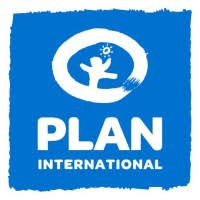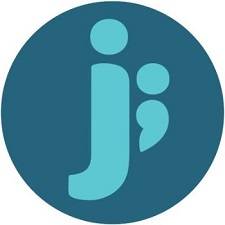Call for Proposal at Plan International Sierra Leone – Video Making
Terms of Reference for participatory video maker
Background & context
The lack of female teachers is one of the factors that make it hard for girls to aspire to a career of their own and to continue with their school studies. Recruiting more women into teaching is critical in terms of improving and sustaining the school participation of girls, particularly in rural areas. However, few women have the required qualifications, experience or opportunities to apply to teacher training programmes.
(adsbygoogle = window.adsbygoogle || []).push({});
The Open University (OU) with FAWE and Plan International (Plan) has developed and led the Learning Assistant (LA)/ Student Teachers (ST) component of the Girls’ Education Challenge project in Sierra Leone. The programme seeks to address community education needs and contribute to gender equity in education in a sustainable manner. The 4-year programme prepares women in rural communities across 5 districts in Sierra Leone to take on teaching roles within their own communities, by returning to education and undertaking training.
The project was funded by a range of different corporate donors and by the DFID’s Girls’ Education Challenge programme and has been implemented for 5 years (2014-2019) with a pause during the Ebola crisis. The overall objective of the LA/ST element of the project was to provide a supported and sustainable pathway into teaching for 500 women, in order to increase numbers of female teachers in rural areas within 5 districts across Sierra Leone.
Purpose
This work will create a participatory video with three student teachers (STs), their school and village community to explore the moment the former learning assistants realised they had become teachers.
This Terms of Reference is for the recruitment of a locally-based film-maker who will work with Plan, the Open University and the three STs to produce a high-quality video by enhancing the participatory experience of women, coaching them to learn some basic technical skills of film-making.
The audience for the participatory video would be the OU, Plan, the funder and external partners.
The student teachers will also be asked, prior to the workshop to capture some of their own images using the tablets about what it means to them to be a teacher.
(adsbygoogle = window.adsbygoogle || []).push({});
Methodology
The focus of the video will be on capturing the girls’ experiences of being a ST with an emphasis on quality teaching and learning. The narrative around quality teaching often focuses on ‘good’ teaching, without proper understanding of what ‘good’ means or what it might look like in practice and why this matters.
This will be achieved through Participatory Video (PV). PV is a qualitative methodology that engages research stakeholders in collective sense-making about a topic they have an interest in, by providing them with the equipment, training and support necessary for them to make their own film about it.
It will be required by the film-maker , working closely with the project team (Plan and OU):
To get familiarised with the project and the journey of the Student Teachers
Work with academic team/project team, to define framework of requirements for the particular activities being filmed and success criteria
Work with the OU academic team, Plan teams in UK and Sierra Leone to plan the details of filming schedule and attend to pre-filming requirements
Undertake capacity development with film project team to provide hands on experience for filming/editing
To provide the necessary equipment and software for making and editing the film
Work with the STs to plan the content and direction of the film (e.g. storyboarding, deciding who to interview, planning and practising interviews and interview technique, key ‘shots’, structure, key messages, sound clips (e.g. music), language of communication, how they will be credited, who else will be credited, the film’s title etc)
To travel to the communities where the STs are and support them to film aspects of their daily lives and film interviews with key selected individuals
To maintain close contact with the OU/Plan team throughout the project period (frequency and mode of communication TBC)
To work with the STs to assemble the filmed material into the agreed structure and engage them in discussions around editing
To edit the film into a professional-looking output including adding English subtitles where appropriate and incorporating agreed-upon title and end-credits
To provide a script of the film’s narrative
The result is a short film which can be used for research and advocacy purposes, in addition to rich narrative and observational data which can be generated and captured through the film-making process (e.g. interviews with and between participants, data generated through workshop activities, group discussions about what goes into the film and what doesn’t and around the editing process).
(adsbygoogle = window.adsbygoogle || []).push({});
Logistics
It is expected that the film-maker will use their own equipment. The location of the work will be Sumbuya, or other location that may be accessible. The film is made by 3 student teachers through a workshop approach. The other participants are involved through the STs interviewing them or through the use of talking heads.
It is expected that other stakeholders involved in the process are: headteacher, 1 female mentor, Family members (father of one of the STs, others), Community leader e.g. Paramount, Chief, social worker or women’s leader , Practice Study Mentor – male, Subject Tutor.
Timeline and inputs
Field work dates
The assignment is due to start in September and is expected to take around 10 days (see below)
The draft outputs (video + transcript+ wraparound text) will be available by the end of September/beginning of October 2021.
The film-maker, will, in conjunction with Plan, ensure that all individuals seen in the materials have signed a consent form or for children there has been parental consent to be included in the film.
Budget
The prospective applicant will submit an indicative budget including fees and logistics.
Deliverables
1 x 10-minute film detailing the experiences of the student teachers’ through making visible their teaching practices, and the support they receive from the school and local community.
(adsbygoogle = window.adsbygoogle || []).push({});
Application Requirement and Deadline
The requirements are as follows:
Company or business registration certificate.
Valid tax compliance certificate
Evidence of NASSIT compliance certificate
Similar work experience
The proposal and the required documents (as stated in article 8) should be submitted to our office at 6 Cantonment Road, Off King Harman Road, Freetown or through the email address:
plansle.procurement@plan-international.org
not later than 4pm on 6th August 2021. The email must be submitted using the subject Call for Proposal – video making
(adsbygoogle = window.adsbygoogle || []).push({});
Disclaimer: Careerical eConsult posts job listings for the convenience of job seekers. We do not endorse or recommend employers, and a posting does not constitute an endorsement or recommendation. Careerical eConsult explicitly makes no representations or guarantees about positions listed on our website. Careerical eConsult is not responsible for safety, wages, working conditions, or other aspects of employment. It is the responsibility of applicants to research the integrity of the organizations to which they are applying. We advise you to use caution and common sense when applying for any position with an organization or private party.





